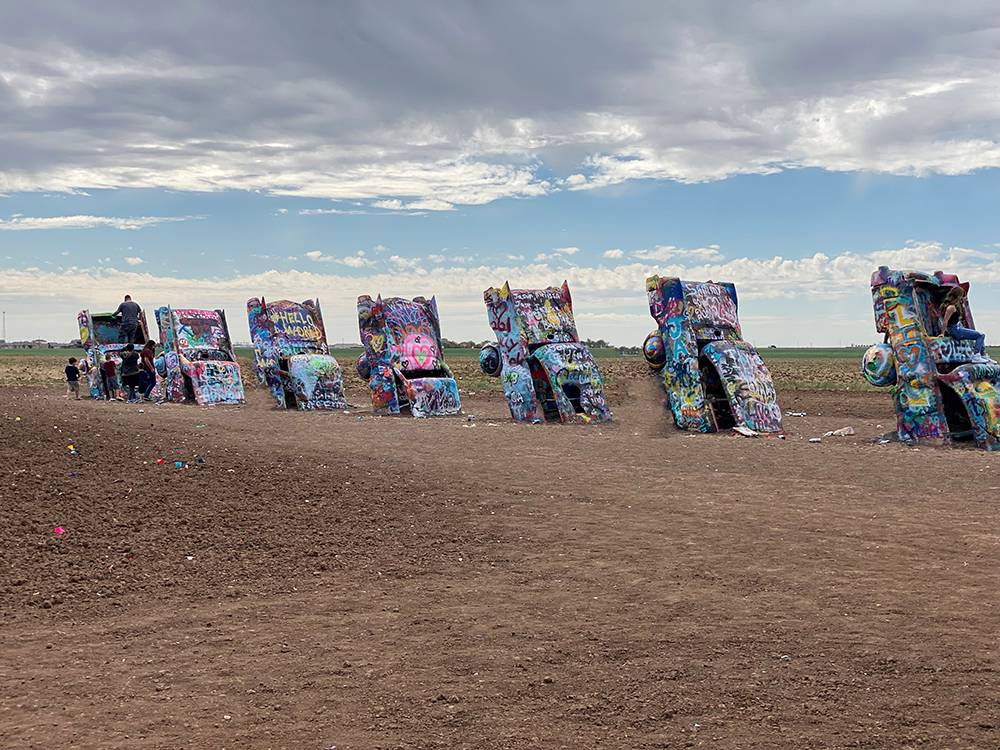
Cover photo courtesy of Adam Clark
Editor’s Note
Summertime and the Living is Easy
William Jensen
You know what I love about summer?
Nothing. Absolutely nothing. It’s hot and humid, and the sun never takes a break. Going to bed when it’s still bright outside feels weird. Don’t get me started on the bugs. Maybe if I grew up somewhere else, perhaps if I lived in Arkansas or Maine or Ohio I’d feel differently. Even when I was a boy, I dreaded summertime. Time off from school didn’t excite me. What was I going to do? Burn in the sun? I didn’t know anyone with a pool. We didn’t even have cable. At least it gave me time to read.
I read a lot during those fiery months. When I was super young, I gravitated toward Roald Dahl, the Scary Stories to Tell in the Dark series, and nonfiction—books about mummies, pirates, and explorers. When I got a little older, I got into gory stuff like Stephen King, Clive Barker, and Robert Bloch. Then, the summer I turned fourteen, I read On The Road by Jack Kerouac and A Portrait of the Artist as a Young Man by James Joyce and everything changed. Lots of people have that one summer…but for me my big regeneration came through reading. Kerouac and Joyce led me viewing the world differently. They opened the doors to literature and music and art. They made language special for my tiny teenage brain. The following summers I devoured Faulkner, Tolstoy, Dostoyevsky, and Homer. Okay, maybe there is something I love about summer. And with all that sunlight, I can stay up late and read even more.
These summers, my reading list consists mostly of Texas books (both history and fiction) and various anthologies. Running a literary journal sure is a dirty job. Okay, I also have a few paperbacks for when I go camping or take a little vacation. Reading in June, July, and August should be a time to delve into the books we’ve been putting off. The summer blockbusters are all just sequels and reboots. I advise we all stay home and read.
Lucky for us, Lone Star State reading is a feast. And this issue of Texas Books in Review covers a gambit of books. Former Texas Books in Review editor David R. Norman’s latest novel, The Watershed Project, is reviewed by Jeranda Dennis. If you like your books about Texas, corrupt churches, and unreliable narrators all wrapped up in a Robbe-Grillet type narrative, you’ll want to read this review. For novels about the borderlands, be sure to read the review of The Death of Father Romero. We also have a review of River, Sing Out by James Wade. Some of you might recall reading a review of Wade’s debut, All Things Left Wild, a few issues back. I don’t want to give too much away about the review, but it is looking more and more like Mr. Wade might be joining the ranks of Larry McMurtry and J. Frank Dobie when it comes to Texas letters. If you’re not into novels, you should check out Riley Welch’s review of Machete—the newest poetry collection by Tomás Q. Morín. Often described as a fresh voice in American poetry, you definitely want to read this review. On the nonfiction sides of things, we also have reviews of Boom or Bust: Narrative, Life, and Culture from the West Texas Oil Patch from editors Sheena B. Stief, Kristen L. Figgins, and Rebecca Day Babcock. Reviewed by Jonna Sharp, who grew up in the region this book discusses, you get an honest opinion about how well this anthology handles the topics only some experience first-hand. For anyone interested in civil rights issues, this issue of TBR also features an insightful review of The Mexican American Experience in Texas: Citizenship, Segregation, and the Struggle for Equality by Martha Menchaca.
It has been a strange spring semester here at the Center for the Study of the Southwest, but we’ve managed to read some good books, have some great authors stop by, and we’ve completed all our events with grace. Some of our events included “Love in Precarious Times: A Queer Politics of Migration” with scholars and adovates, Ariana Ochoa Camacho and Kathleen Coll. Our director appeared on Blackademics Television on Austin PBS. We also hosted “Risk, Oil Communities and West Texas Booms” with Sarah Stanford Micintyre, a labor historian and co-director of the Engineering, Ethics and Society Certificate at the Herbst School of Engineering at University of Colorado, Boulder. We also want to pay tribute to Catherine E. Supple, a longtime supporter of the Center for the Study of the Southwest, who passed away in March. Her husband had been a former president of our university, and she was an important patron to local artists. She created the Presidential Scholarship at Texas State, and she was always eager to discuss culture, the humanities, and share stories. She will be deeply missed.
From all of us here at the Center for the Study of the Southwest, we wish you lots of great reading, fun adventures, and hopefully you’ll stay hydrated and cool out there. Remember to wear sunscreen. We’ll see you again in the fall.
